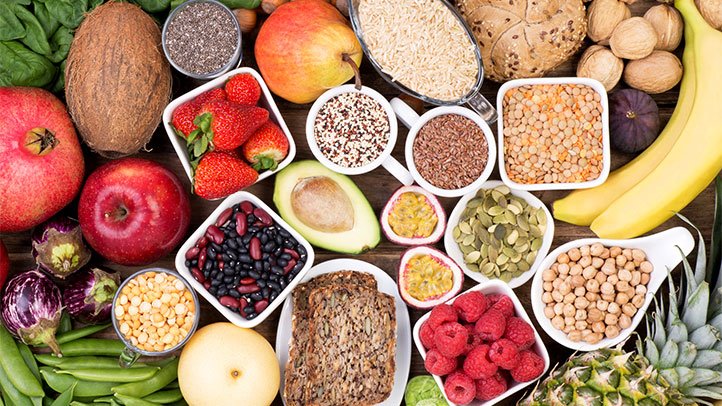Gut Health – Is Your Gut Slowing You Down?
Are you slogging away at the gym and still struggling to lose weight? Do you find yourself feeling depressed or anxious? Are you plagued by digestive issues such as constipation, bloating and diarrhoea? If some or all of these symptoms sound familiar to you, it might be a sign that your gut bacteria is out of whack.
Research has shown that poor gut health can lead to an array of health conditions including insomnia, depression, weight gain, asthma, and even autism (Willis, 2017). We also now know that our gut bacteria and our immune systems are very closely linked. The good news, however, is that with the proper diet and correct “pre/probiotic” foods, you can alter the state of your gut microbiome (Pemberton, 2017).
The primary role of our gut microbiome is to assist in the digestion process. This good bacterium helps to produce vitamins and antioxidants, which then break down the macronutrients (carbohydrates, proteins, fats) that we eat (Willis, 2017). So what types of foods should you eat to maintain a healthy gut?
Probiotic Foods
The best way to obtain good gut bacteria is to ingest it. Most fermented foods are rich in “probiotics”. This includes yoghurt, sauerkraut, kimchi, apple cider vinegar and kombucha (Jenkins, 2017). The microorganisms found in these foods are similar to those in our digestive tract and will help break down the foods we eat and also support our immune systems.
Prebiotic Foods
The other way to improve your gut microbiome is through “prebiotics”. Essentially, “prebiotics” are foods that feed the good bacteria and create an accommodating environment for them to grow (Flemming, 2017). Whilst it is great to drink kombucha and eat kimchi if the rest of your diet is poor then the probiotics you are consuming will not survive in your gut.
What foods should you avoid?
Processed foods, alcohol, antibiotics and high fat diets all tend to throw out the balance of the good bacteria in our gut. However, a high-fibre diet increases your chances of being exposed to the prebiotic bacteria (The Australian Nutrition Foundation, 2014).
What alternative types of food should I eat?
Foods high in dietary fibre include oats, beans, barley, legumes, garlic and leafy green vegetables. Dietary fibre also has starch resistant properties meaning it lowers the absorption of sugar across the gastrointestinal tract (Read, et al. 2015).
How much fibre should I eat?
Females should aim for 25g of fibre a day and 30g a day for males (The Australian Nutrition Foundation , 2014).gut flora
Simply food swaps can help you achieve your daily fibre intake.
For example, choose a wholegrain/wholemeal option for your bread and pastas. Enjoy a variety of whole grains such as oats, barley, quinoa and buckwheat. Swap out your sugary treats for a fruit alternative. Try to get 2 servings of fruit and 5 servings of vegetables every day.
What about probiotic supplements?
You can take probiotic supplements to boost your good bacteria but these will only work if your diet consists of enough fibre to accommodate this good bacterium.
To wrap it all up…. How to balance your gut bacteria for gut health?
– Avoid toxins (sugary foods, unhealthy fats/oils)
– Eat fermented foods complemented with a high fibre diet
– Take probiotic supplements
– Manage your stress
References:
Flemming, A. (2017, November 7). Is your gut microbiome the key to health and happiness? Retrieved March 22, 2018, from The Guardian:
Jenkins, D. (2017, June 17). 8 of the Best Sources of Fibre. Retrieved March 26, 2018, from MyBody+Soul
Pemberton, C. (2017). 7 Signs Your Gut Bacteria Are Out of Whack. Retrieved March 2018, from Paleo Hacks
Read, M., Andrew Holmes, M. H.-L., Simpson, S., Solon-Biet, S., & Raubenheimer, D. (2015). Simulating the Influence of Diet on the Intestinal Microbiome Composition. The University of Sydney, Australia, Charles Perkins Centre. Sydney: The University of Sydney.
The Australian Nutrition Foundation . (2014, October). Fibre. Retrieved March 22, 2018, from Nutrition Australia
Willis, O. (2017, March 22). Burning question: How does your diet affect your gut bacteria? Retrieved March 2018, from ABC




